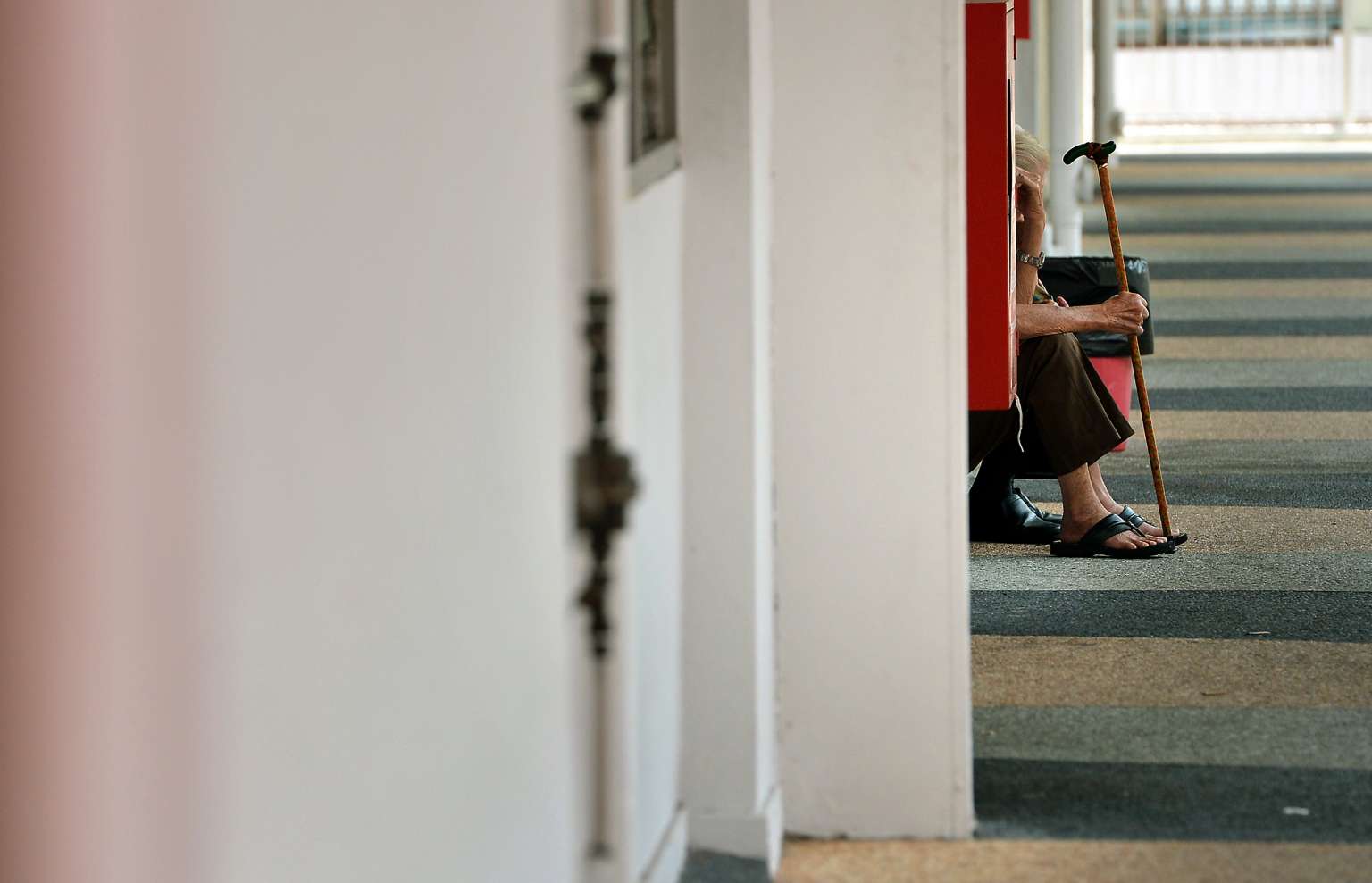More seniors in Singapore taking own lives
Nearly 60% jump from figure in 2000; social isolation and physical and mental ill health may be contributing factors
Sign up now: Get ST's newsletters delivered to your inbox

In 2014, 126 seniors aged 60 and above killed themselves.
PHOTO: ST FILE
Janice Tai
Follow topic:
SINGAPORE - The golden years are losing their lustre for a rising number of the elderly here, with more taking their lives in the later phase of life.
Last year (2014), 126 seniors aged 60 and above killed themselves. This is a jump of nearly 60 per cent from the 79 seniors who committed suicide in 2000. There were 95 of them in 2010.
While the suicide rate in Singapore has remained at between eight and 10 suicides per 100,000 residents over the past decade, the proportion of the elderly among those who take their lives each year has risen.
In 2000, 23 per cent of suicides here were from among the elderly. By 2010, the group made up 27 per cent, and the number grew to 30 per cent last year.
"It worries us that more of the elderly are turning to suicide as the only choice to end their pain and struggles," said Ms Chan Wai Ping, counsellor at Tsao Foundation's Hua Mei Centre for Successful Ageing.
-
Number of suicides among people aged 60 and above
2014
126
30% of all suicides
2010
95
27% of all suicides
2000
79
23% of all suicides
Helplines
•Samaritans of Singapore (SOS): 1800- 221-4444 (24-hour)
•Singapore Association for Mental Health: 1800-283-7019
•IMH Mobile Crisis Service: 6389-2222 (24-hour)
•Care Corner Counselling Centre (Mandarin): 1800-353-5800
•Seniors Helpline: 1800-555-5555
•Touchline (Touch Youth Service): 1800-377-2252
•Tinkle Friend: Children can call 1800- 274-4788 on weekdays
•Aware: 1800-774-5935
•Family Service Centre: 1800-838-0100
Ms Christine Wong, executive director of suicide prevention agency Samaritans of Singapore, said suicides among the elderly are "a disturbing indicator of the level of distress they were experiencing in what should be the golden years of their lives". "The majority of the elderly clients who called our 24-hour hotline expressed concerns such as physical and mental ill health, financial and relationship issues, and loneliness," said Ms Wong.
Ms Chan added: "They lose a sense of purpose, lack confidence in coping with further deterioration and don't want to be a burden as their care needs get more demanding."
About a third of the elderly that the centre counselled over the past three years experienced social isolation, a major issue for older adults here. About 32 per cent of older Singaporeans aged 60 and older report being sometimes lonely, and 19 per cent report being mostly lonely, said a study led by Associate Professor Angelique Chan of the Duke-NUS Graduate Medical School.
The study, released last year, found that feeling lonely raised one's risk of dying by 34 per cent over a four-year period, compared with those who were not lonely.
The number of people aged 65 and above who live by themselves has nearly tripled from 14,500 in 2000 to 42,100 last year. The elderly make up about a third of all one- person households here.
While some of these seniors are single from the start, counsellors say many others struggle with adjusting to life after the death of their spouses.
But loneliness is a state of mind and can affect even those who live with family. Prof Chan's study showed that individuals who live alone or live with children are most likely to be lonely, but living with a spouse helps to stave off loneliness.
It is not known if the depression rate among the elderly has risen, but the Institute of Mental Health is working on a $4.4 million study on the well-being of the elderly here to examine this aspect, among others.
Prof Chan said: "As loneliness is a more powerful predictor of mortality compared with living arrangements, programmes that focus solely on older adults living alone may miss a large group of lonely older adults living with children."
Busy schedules and caring for their own children could make adult children less available to their parents, she added.
Experts say people should be trained in mental "CPR".
"It would be helpful for staff and volunteers in welfare organisations to be trained in identifying symptoms of depression, and family members to be able to spot signs of cognitive decline," said Mr Edmund Song, executive director of RSVP Singapore, a non-profit organisation of senior volunteers .
Ms Chan said: "Even when providing services, we need to actively involve and empower the elderly in their own health management rather than have them as passive recipients."
Sometimes, what old people need is simply friendship, as in the case of a man befriended by Mr Tan Chor Koon, 57, who has been making home visits to the elderly with Lions Befrienders since 2009.
The assistant property manager recalled an old man who expressed a wish to visit a friend in Thailand after finding out he had late-stage liver cancer. Dr Chey Chor Khoon, executive director of Lions Befrienders, said: "Mr Tan's friendship has brought meaning, assurance and comfort to his befriendee. He even helped his befriendee to fulfil that extraordinary last wish."

